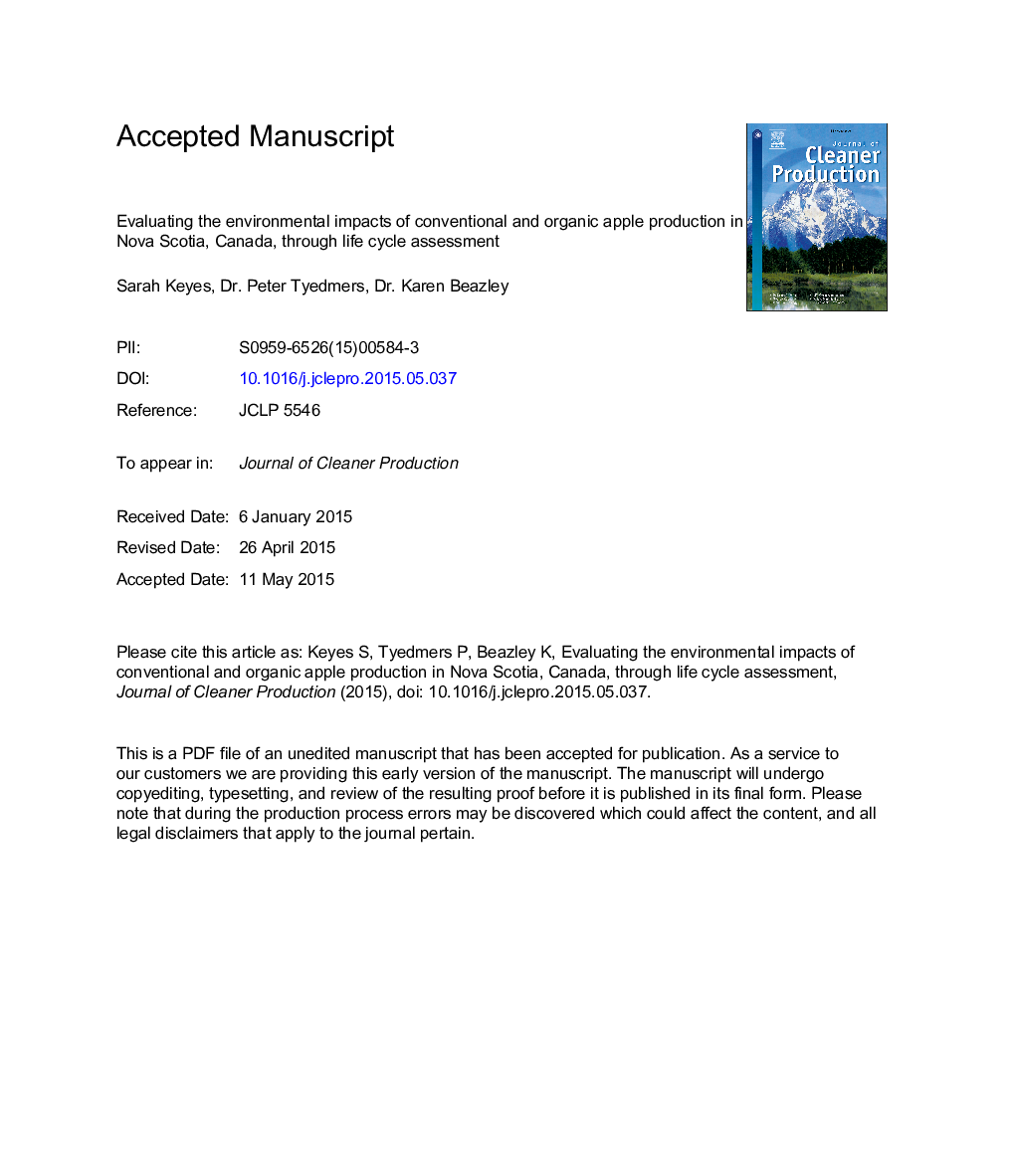| Article ID | Journal | Published Year | Pages | File Type |
|---|---|---|---|---|
| 8103342 | Journal of Cleaner Production | 2015 | 50 Pages |
Abstract
Life cycle assessment (LCA) was used to characterize the environmental performance and potential improvement opportunities related to conventional and organic apple systems in Nova Scotia, Canada. The goal was to quantify and evaluate resources and energy required for production, storage, and transportation, determining how each supply chain sub-system contributes to relevant global scale environmental burdens. Importantly, scenario models were constructed to explore performance improvement opportunities related to key supply chain inputs. Results indicate that up to point of harvest, the combustion of diesel fuel, production and associated field-level emissions of fertilizers (i.e. synthetic and manure), and inputs to pest and disease management were major contributors to environmental impacts on both conventional and organic orchards. Extending system boundaries to cradle-to-retail locations (both local and distal), revealed, somewhat surprisingly, that electricity needed for long-term storage resulted in substantial burdens, highlighting the problems of coal-based electricity generation in Nova Scotia. Consuming locally produced apples when in season was found to be environmentally preferable to those requiring year round storage, while transport by freight ship is more favorable than long distance transport truck delivery.
Related Topics
Physical Sciences and Engineering
Energy
Renewable Energy, Sustainability and the Environment
Authors
Sarah Keyes, Peter Tyedmers, Karen Beazley,
